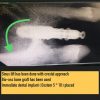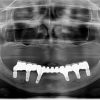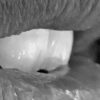The four permanent adult teeth found at the top and bottom in the back corner of your mouth are known as the wisdom tooth. Usually, it generally erupts for most people and does not cause any problems. For some individuals, wisdom tooth does not develop at all. However, these teeth may cause problems if it doesn’t have a good room to grow (also known as impacted tooth) like pain, infection, and other dental problems.
In severe conditions, the tooth is needed to be pulled by a dental surgeon or a dentist through a process known as wisdom teeth extraction.
Reason For Performing The Procedure
Wisdom teeth, also known as the third molar teeth, appear between the age of 17 to 25 in humans. In some cases, they do not have suitable room to erupt in or develop properly. Partial or absence of growth is expected in impacted teeth. Some oral surgeons or dentists can suggest that the procedure is completed earlier when the affected tooth is not causing any problems. They provide the following reasons for doing this operation:
- Asymptomatic impacted wisdom teeth can get infected and have harmful microbes present.
- The absence or reduction of space because of the impacted wisdom tooth makes it harder to access and clean it properly.
- Younger adults have lower instances of serious complications occurring with impacted wisdom teeth.
- The probability of difficulty and complications after dental operations increases in senior adults.
Issues Occurring With Ill-Formed Wisdom Teeth
Impacted wisdom teeth may be asymptomatic, but some dentists prefer to extract them before it starts to cause any problems. Dentists of the most popular clinic cannot always perform a root canal treatment in Jaipur to solve the issues, as impacted wisdom teeth are not always easily accessible. One can list the problems as:
- Ache
- Food and debris lodging behind the wisdom tooth
- Infection
- Decay in a partly appeared wisdom tooth
- Injury in the surrounding bone or the neighboring teeth.
- Growth of a cyst (fluid-filled sac) nearby the wisdom tooth
- Difficulties with orthodontic management to level other teeth
The Preparation Stage
Wisdom Tooth Extraction is not a complex procedure; however, depending upon the seriousness of the injury and state of the impacted teeth, a dental surgeon or dentist may operate in their office. They will numb the area of operation before the surgery and suggest sedation to make you more comfortable. Before that, the patient will have to know about the following information from the clinic or the doctor:
- Requirement for any person to accompany the patient.
- The time to reach the dental clinic
- Is there any need to stop eating or drinking any fluid? If so, how long before the operation?
- Can the patient take their prescribed medication before the surgery? If yes, when should they take it before the surgery?
- Should any over–the–counter (OTC) medicine be taken or avoided?
Get in touch with Nawal’s Dental Clinic for the best treatment for your impacted tooth.
The Procedure
The process of extracting wisdom teeth is standardized for each clinic or dental institution. The most experienced and best dentist doctor in Jaipur will complete the operation quickly. In most cases, the patient can go home the same day. In short, the procedure can be stated as:
- Depending upon the depth of the surgery and the situation of the impacted teeth, the dentist will apply local anesthesia, sedation, or general anesthesia. Depending upon the anesthesia, you will feel no pain but could or could not have a memory of the procedure.
- The dental surgeon will expose the bone by making an incision in the gum tissue.
- The doctor will then take out the bone that blocks access to the tooth root.
- They can remove the tooth piece by piece if it’s easier.
- Then, the surgeon will remove any tooth or bone debris from the operation site and clean it.
- Afterward, they can stitch the incision site to hasten the healing, although it is optional.
- Finally, they will cover the site with gauze to promote the formation of a blood clot and control the bleeding.
After-Surgery Precautions
The patient will have to keep in mind the factors mentioned below:
- Oozing of some blood is normal after wisdom teeth removal. They should avoid excessive spitting; otherwise, the blood clot may get out. The gauze should be replaced as directed by the surgeon.
- Pain after the surgery is also common. The dentist may suggest OTC pain relievers like acetaminophen for pain management. Otherwise, holding an ice pack against the jaw will help.
- The patient can also use the ice pack to get relief from the swelling and bruising.
- The patent should rest for the remainder of the day after the surgery. They can continue regular activity after 24 hours; however, they should refrain from vigorous exercise for at least a week to avoid dislodging the blood clot.
- The surgeon will recommend drinking lots of water after the surgery. The patient should not drink carbonated, hot, caffeinated, or alcoholic beverages during the first 24 hours of the surgery, especially with a straw. Otherwise, the blood clot may get displaced.
- The patients must take only soft food after the operation for one day and avoid spicy, hard, and chewy food that could irritate the wound or block the socket.
Consulting Experienced Dentists
Usually, the problems go away after a successful extraction of an impacted wisdom tooth. Still, patients should visit dentists periodically. If they face any problem due to wisdom teeth, be sure to contact the best dentist doctor in Jaipur at the best clinic for their dental problems.





